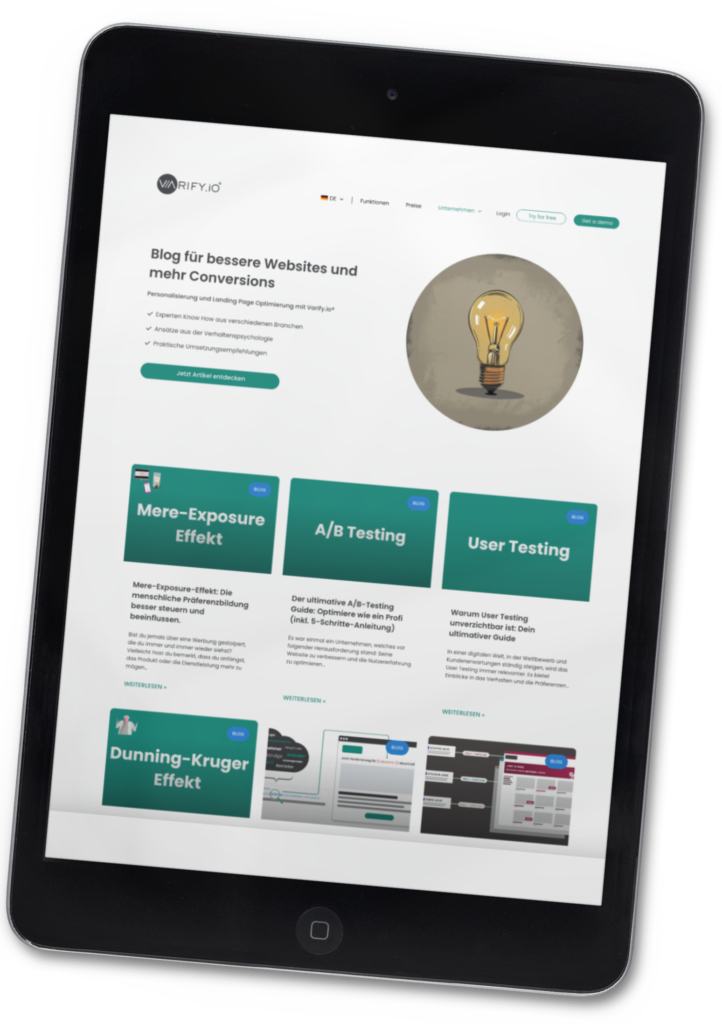In today's digital landscape, personalization is no longer just a nice-to-have extra, but a critical requirement. For companies that want to remain competitive, it is essential to create personalized experiences for their customers. In this article, we will discuss the importance of personalization, the methods of its implementation and its benefits for businesses and customers.
What is personalization?
Personalization is the process by which companies tailor their services, products and communications to the individual needs and preferences of their customers.
It is based on data analytics and artificial intelligence and aims to provide a Develop deep understanding of customers and Delivering customized experiences.
Why is personalization important?
Personalization is playing an increasingly important role in the modern business world. It improves the customer experience, increases customer satisfaction and retention, and can ultimately lead to higher sales.
It also helps companies stand out in a crowded market and strengthen their brand identity.
How is personalization implemented?
Implementing personalization requires the use of advanced technologies such as data analytics, artificial intelligence and machine learning. Companies need to collect relevant data, analyze that data to gain valuable insights, and then use those insights to create personalized customer experiences.
In addition, it is important to maintain a culture of continuous improvement and adaptation to meet ever-changing customer needs.
The advantages of personalization
1. improved customer experience: By providing customized interactions, companies can significantly improve the customer experience.
2. stronger customer loyalty: Personalized experiences drive customer engagement, resulting in stronger retention and loyalty.
3. higher conversion rates: By presenting relevant offers and content tailored to a customer's individual needs and preferences, companies can increase conversion rates.
4. more efficient marketing activities: Personalization allows companies to target their marketing efforts to individual customer profiles, making more efficient use of resources and improving marketing ROI.
5. differentiation from the competition: Personalization enables businesses to stand out in a crowded marketplace by providing unique and personalized customer experiences.
6. increase in business development: Ultimately, all of these benefits can combine to help drive sales and business growth.
Personalization in online marketing
Personalization is a critical success factor in the world of online marketing. Given the multitude of ways consumers can interact online, and where, a personalized approach is critical to attracting attention and increasing customer loyalty.
Search engine marketing
In search marketing campaigns, personalization enables a more precise targeting strategy. By using behavioral and interest data, companies can create personalized ads tailored to a user's specific search queries and preferences.
Email marketing
Email marketing is another important component of online marketing that benefits significantly from personalization. Personalized email campaigns based on user behavior, preferences, and engagement can significantly improve open, click, and conversion rates.
Social Media Marketing
Social media platforms offer tremendous opportunities for personalization. Companies can create personalized content, ads, and messages based on the interests, behaviors, and demographics of their target audience.
Content Marketing
Personalization also plays a crucial role in content marketing. By creating content that is tailored to the specific needs and interests of their target audience, companies can achieve higher engagement and stronger brand loyalty.
Website personalization
Website personalization can help improve the user experience and increase conversion rates. This can include highlighting certain products or offers, customizing content based on the user's interests, or displaying personalized welcome messages.
The need for A/B testing in personalization
A/B testing is a critical element in personalization strategy. It allows companies to refine and optimize their personalization efforts to achieve the best possible results. Here are the main reasons why A/B testing must be used in the personalization process:
Optimization of personalization effects:
Although personalization generally has positive effects, specific results vary depending on the application. A/B testing allows companies to compare different personalization strategies and see which is most effective. This enables continuous improvement and optimization of personalization effects.
Avoidance of assumptions:
Often, personalization strategies are based on assumptions about what customers want or need. A/B testing makes it possible to test these assumptions and ensure that they actually lead to positive results. This helps to avoid mistakes and ensure that personalization is based on solid data.
Understanding customers:
A/B testing can also provide deep insights into customer behavior and preferences. By testing different elements, companies can better understand what appeals to their customers and what does not. This knowledge can then be used to develop more effective personalization strategies.
Overall, A/B testing is an essential tool to ensure that personalization efforts are effective and efficient. It enables data-driven decision making, promotes customer understanding, and helps optimize personalization strategies.
Conclusion
In a world increasingly shaped by digital technologies, personalization is a crucial factor for business success. By applying the principles and methods of personalization, companies can better understand and serve the needs of their customers, differentiate themselves in their market, and ultimately increase their business success.
